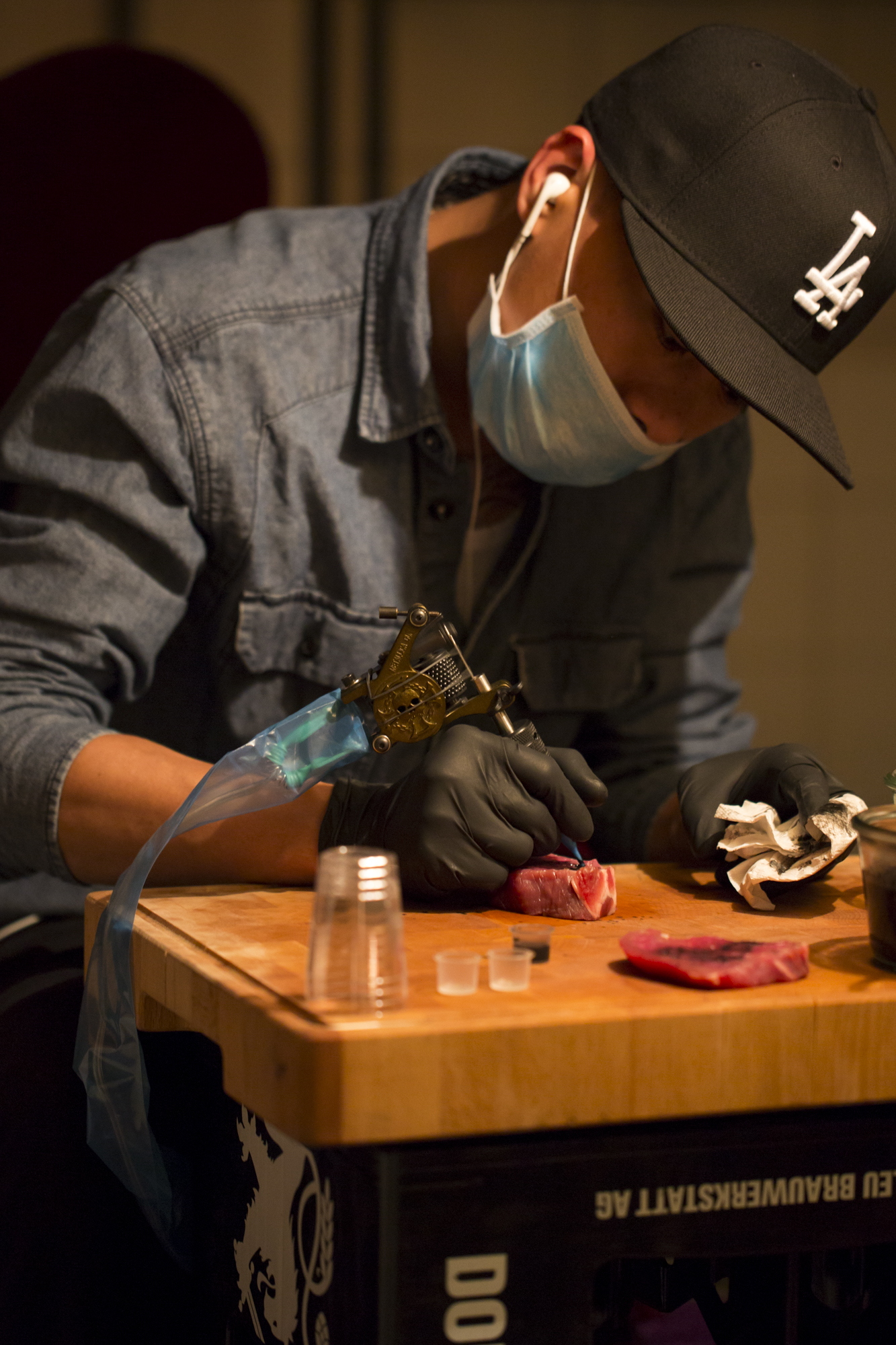In this way, event organizers can avoid financial surprises in catering.
Whereas in a traditional restaurant it feels like you simply pay for what you eat and most other expenses are already covered in the menu price, with a catering solution a wide variety of items such as staff costs, travel expenses, tabletop, decoration, room rental or furniture are billed separately.
We asked Nicolai Squarra, Head of Business Development, whether this is fair and how event organizers can avoid cost surprises.
Nicolai, why are so many expenses charged separately or additionally for event catering, unlike in a restaurant, for example?
Nicolai: The most important reasons for this are the always different event and time schedules and, last but not least, the demand for individuality in the catering concept. In a traditional restaurant, guests come to the host, usually stay no longer than two to three hours and eat what the chef serves them.
I think all event organizers would agree that the starting point for event catering is different. We drive to the most remote locations for our customers and guests, often bring tons of equipment with us and start setting up long before the guests arrive. And when everyone has gone home, we are still dismantling the equipment.
We also design individual catering concepts, which always require completely different infrastructures and personnel resources. For this reason, it only makes sense to show the actual costs of the catering concept and to charge the other costs according to the expenses.
From this, in turn, it is often possible to draw worthwhile conclusions about how catering savings can be made by making small adjustments to the event concept without compromising on quality or the guest experience. Imagine, for example, the cost implications of reducing a show program by ten minutes at a served dinner if 100 service staff have to wait ten minutes less before they can serve the next course...
And what about comparability, do all caterers calculate the additional costs in the same way, or are there differences?
In my experience, it depends on the level of professionalism of the caterer. The large event caterers generally provide transparent and detailed quotes. Restaurants and other caterers who see catering as a sideline to their main business tend to follow the classic costing models. This works well until the events and customer requirements become more complex.
Of course, there are also differences in the billing of additional costs among professional event caterers. Ultimately, this is also a question of pricing policy. Combining several cost items within the framework of flat rates offers budget security on the customer side and may create competitive advantages. This is one of the reasons why we always decide to offer drinks or even total packages for the event in question.
What are the biggest cost drivers in event catering - or to put it another way, where do event organizers have the greatest savings potential in event catering?
There are many cost drivers. I always advise my clients to avoid those that don't lead to a better overall result. This could be the adjustment of time schedules outlined above, a much too broad menu concept or content that is not appreciated by the majority of guests.
A homemade meatloaf may be a better choice for a certain clientele or event format than a fine dining gala dinner. The focus should always be on the guest benefit. If you take this into account, you can avoid unnecessary cost drivers.
The bottom line is that an event in a traditional hotel/restaurant may well be cheaper than in an event location with catering. Why should I still consider a catering solution as an organizer?
I don't think you can say across the board that a catering solution is always the better choice. If overnight accommodation is required and the uniqueness of an event is not the top priority, a turnkey solution such as a hotel or restaurant may well be the better choice.
There are many exciting venues that are perfect for this. I recommend a catering solution when so-called "off locations" without fixed catering are to be used and the customer wants to implement an event that is as unique as possible.
Purely hypothetically: if I don't want to save money for once, but really want to do things with a big ladle: what are your favorite catering ideas if the budget doesn't play a role for once?
I could fill entire books at this point. If there's one thing we never run out of, it's ideas. But contrary to what many people now assume, if I had a limitless budget, my choice would not necessarily fall on a grandiose wine such as a Château Lafite-Rothschild or other exquisite products.
I am convinced that the greatest benefit for guests is achieved when a mix of culinary delights, ambience and entertainment is also achieved in the catering. A great catering concept is characterized by the fact that the experiences are etched on the guests' retinas and they still talk about this one evening with joy and enthusiasm years later.
To achieve this, we have to break with convention and deliver the unexpected. For example, we invited a tattoo artist for a customer event to tattoo beef fillet before grilling it in the "Beefer". The whole scenario was accompanied by two artists from the Zurich University of Music, who played classical pieces in complete contrast. These are the moments that make our job what it is: fantastic!


